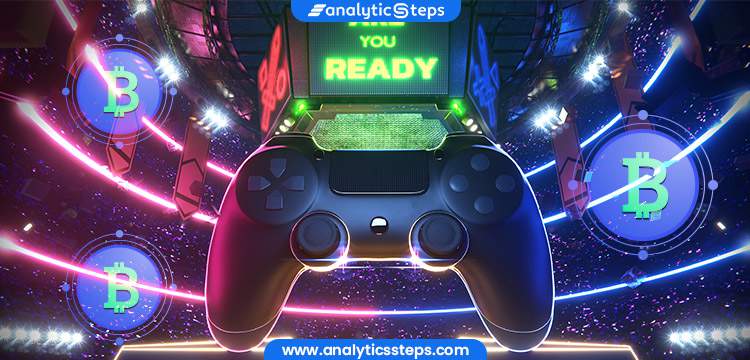Revitalize Your Look with Biondo Hair Design
Explore the latest trends and tips in hair design and care to achieve the perfect look.
Game On: How Blockchain is Revolutionizing Your Next Play Session
Unlock the future of gaming! Discover how blockchain is transforming your play sessions into secure, immersive experiences. Game on!
Understanding Blockchain Gaming: How It's Changing the Landscape of Play
Understanding Blockchain Gaming has become increasingly important as the digital landscape evolves. This innovative technology is beginning to transform the way players interact with their games. By leveraging decentralized networks, blockchain gaming allows players to have true ownership of in-game assets, represented as non-fungible tokens (NFTs). Unlike traditional games, where players must rely on central authorities to manage their items, blockchain enables a peer-to-peer environment where assets can be bought, sold, or traded freely. This shift not only empowers players but also fosters a vibrant marketplace for virtual goods.
As blockchain technology becomes more integrated into the gaming industry, it is essential to grasp its implications for both developers and players. Blockchain gaming offers unprecedented transparency and security, reducing the risk of cheating and fraud, which has long plagued the gaming world. Furthermore, the play-to-earn model is a significant game-changer, allowing players to earn real-world value through their gameplay. This evolving ecosystem is set to redefine the conventional gaming paradigm, making it crucial for enthusiasts to stay informed about these advancements and how they affect their favorite pastime.

Counter-Strike is a highly competitive first-person shooter game that pits teams of terrorists against counter-terrorists in various objective-based scenarios. Players must use strategy, teamwork, and skill to outmaneuver their opponents, making it a beloved title among esports enthusiasts. If you're looking to enhance your gaming experience, check out the rollbit promo code for some exciting bonuses.
Top 5 Benefits of Integrating Blockchain Technology in Video Games
Integrating blockchain technology in video games offers a myriad of advantages that can revolutionize the gaming experience for both developers and players. Firstly, blockchain provides a decentralized platform that enhances security and transparency in transactions. This ensures that in-game assets, such as skins and weapons, can be securely traded without the fear of fraud. With immutable records of ownership, players can have true ownership of their digital assets, which fundamentally changes the way they interact with games.
Secondly, the incorporation of blockchain technology facilitates interoperability among different games. Players can utilize their assets across various platforms, increasing the value and usability of in-game items. This creates a more engaging and seamless experience, as gamers are no longer constrained to a single environment. Lastly, blockchain also introduces innovative monetization models through play-to-earn mechanisms, allowing players to earn real-world value from their in-game actions. This not only boosts player engagement but also fosters a thriving game economy.
Is Blockchain the Future of Gaming? Exploring Its Impact on Player Experience
The emergence of blockchain technology has ignited discussions about its potential to revolutionize various industries, with gaming being a significant focus. One of the most compelling benefits of blockchain in gaming is the enhancement of player experience. By leveraging decentralized platforms, players gain true ownership of in-game assets, as these items are stored on the blockchain rather than controlled by a centralized server. This paradigm shift empowers gamers to trade, sell, or even utilize their assets across different games, creating a vibrant ecosystem that promotes player agency and economic opportunity.
Moreover, the incorporation of blockchain in gaming can also lead to greater transparency and trust. Smart contracts can be utilized to ensure secure transactions, player rewards, and fair gameplay mechanics, minimizing the risks associated with fraud or manipulation. This level of transparency not only enhances the overall gaming experience but also fosters a stronger sense of community among players. As we explore the integration of blockchain within the gaming sector, it becomes increasingly clear that its impact on player experience could shape the future landscape of interactive entertainment.